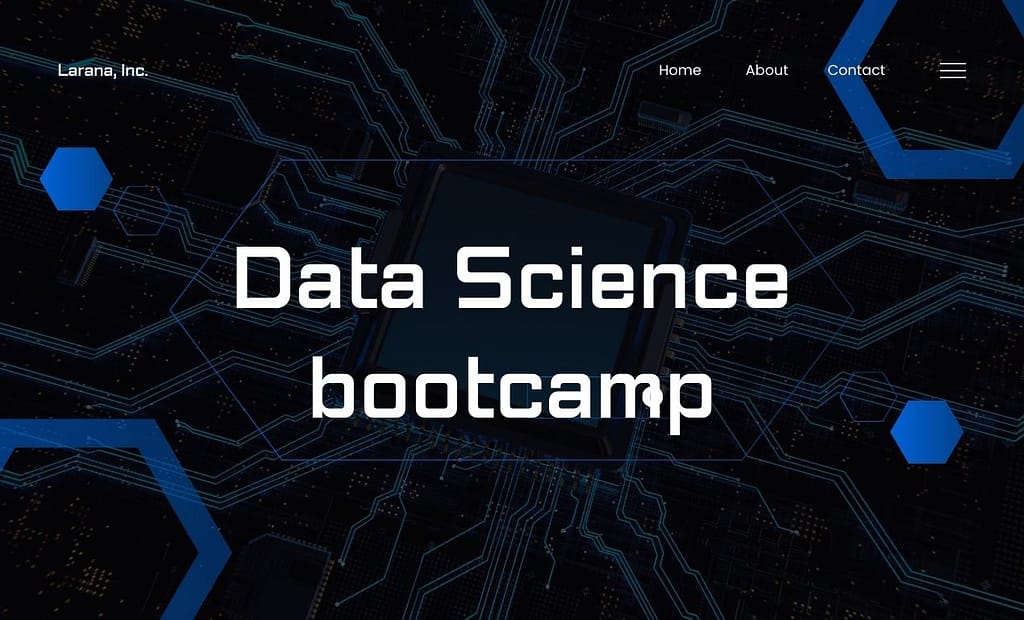How to Choose the Best Data Science Bootcamp

With the surge in demand for data scientists, many people are looking to data science bootcamps as a pathway to enter this lucrative field. However, choosing the right bootcamp can be a daunting task given the plethora of options available. Here’s a comprehensive guide on how to choose the best data science bootcamp to meet your needs and career goals.
Define Your Goals
Before diving into your search, it’s essential to understand what you want to achieve. Are you looking to switch careers, enhance your current skills, or gain specialized knowledge in a particular area of data science? Your goals will guide your choice of bootcamp.
- Career Switchers: Look for comprehensive bootcamps covering both foundational and advanced topics.
- Skill Enhancers: Choose programs focusing on advanced or specialized topics such as machine learning or data engineering.
- Specific Certifications: Ensure the bootcamp provides recognized certifications that can boost your resume.
Research the Curriculum
The curriculum is the backbone of any bootcamp. It should cover the essential topics and offer a balance between theory and practical application.
- Core Topics: Ensure the curriculum includes statistics, programming (Python or R), machine learning, data wrangling, data visualization, and SQL.
- Hands-On Projects: Look for bootcamps that emphasize practical, real-world projects.
- Capstone Project: A final project that integrates all the skills learned during the course.
Check Instructor Expertise
The quality of instruction can significantly impact your learning experience. Research the background and qualifications of the instructors.
- Industry Experience: Instructors with practical experience in data science can provide valuable insights.
- Teaching Experience: Educators who can effectively convey complex concepts are essential.
- Academic Credentials: Instructors with advanced degrees in data science or related fields can be an advantage.
Evaluate the Learning Format
Bootcamps come in various formats: full-time, part-time, in-person, and online. Choose a format that suits your schedule and learning style.
- Full-Time vs. Part-Time: Full-time bootcamps are intensive and suitable for those who can dedicate themselves entirely. Part-time bootcamps allow you to learn while working.
- In-Person vs. Online: In-person bootcamps offer direct interaction with instructors and peers, while online bootcamps provide flexibility.
- Hybrid Models: Some bootcamps offer a combination of both, providing the best of both worlds.
Consider the Cost
Bootcamps can be a significant investment. Evaluate the cost and ensure it provides good value for money.
- Tuition Fees: Compare the fees of different bootcamps.
- Financial Aid: Look for scholarships, payment plans, and financing options.
- Return on Investment: Consider the potential salary increase and career opportunities post-bootcamp.
Review Job Placement Services
A good bootcamp doesn’t just teach you data science; it helps you land a job. Investigate the career services offered.
- Job Placement Rate: Check the bootcamp’s job placement statistics and average salary of graduates.
- Career Support: Look for services like resume reviews, interview preparation, and networking opportunities.
- Industry Connections: Strong partnerships with companies and a robust alumni network can be beneficial.
Read Reviews and Testimonials
Reviews and testimonials provide insights into the experiences of past students. They can highlight strengths and potential red flags.
- Alumni Success Stories: Look for success stories and career progress of past graduates.
- Independent Reviews: Platforms like Course Report, SwitchUp, and Yelp can offer unbiased opinions.
- Social Media and Forums: Reddit and LinkedIn can provide additional insights.
Assess the Community and Support System
A supportive community can enhance your learning experience. Check the level of support and engagement offered by the bootcamp.
- Peer Support: Opportunities for collaboration and group projects.
- Mentorship: Access to mentors for guidance and support.
- Alumni Network: A strong network can provide ongoing support and job opportunities.
Examine the Bootcamp’s Track Record
The longevity and reputation of a bootcamp can be good indicators of its quality.
- Years in Operation: Established bootcamps with a proven track record are often more reliable.
- Accreditation: Check if the bootcamp is accredited by relevant educational authorities.
- Awards and Recognition: Awards and accolades can signal high quality.
Attend Information Sessions and Ask Questions
Many bootcamps offer information sessions. Attend these to get a feel for the program and ask any lingering questions.
- Program Details: Clarify any doubts about the curriculum, instructors, and learning format.
- Success Metrics: Ask about job placement rates, alumni achievements, and industry partnerships.
- Trial Classes: Some bootcamps offer trial classes or modules. Take advantage of these to gauge the teaching quality.
Table of Contents
Conclusion
Choosing the best data science bootcamp requires careful consideration of your career goals, the curriculum, instructor expertise, cost, and support services. By thoroughly researching and evaluating your options, you can find a bootcamp that provides the right blend of knowledge, practical experience, and career support. Take the time to make an informed decision, and you’ll be well on your way to a successful career in data science.
2 thoughts on “How to choose the Best Top 2 data science bootcamp”